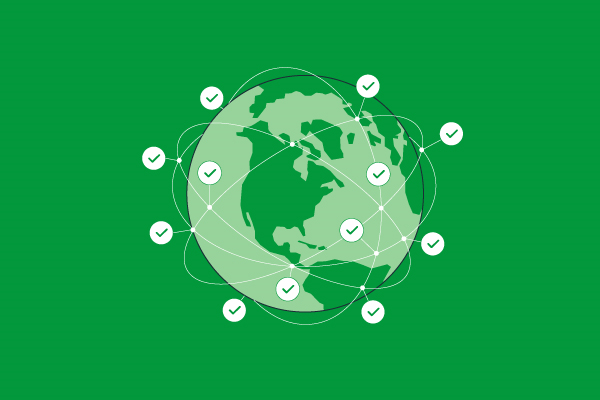This article dives into processing credit card payments online by businesses, and the factors that should be taken into account when choosing the right credit card payment provider, as well as the risks associated with processing credit card payments online.
What is credit card payment?
With a credit card, your purchase amount is added to the balance of your account, which is typically called the balance of your credit card. In addition to your purchases, your balance also includes any discounts you’ve earned. Your balance includes interest and any fees and penalties you have been charged by the card issuer. In addition to annual fees and foreign transaction fees, there may also be cash advance fees and late payment penalties.
During each monthly billing cycle, your card issuer will tell you how much you owe, how much you must pay, and when you must pay. You will remain in good standing with your credit issuer if you make at least the minimum payment on time. Interest continues to accumulate on the remaining balance until the next month’s balance rolls over. That is why you should pay more than the minimum each month and, ideally, pay off your balance completely. Your credit score will not be affected if you make the minimum payment and roll your balance over to the next month. Having a balance that’s too large compared to your total credit limit can be problematic. A prospective lender considers your credit utilization ratio when deciding whether to lend you money. Those who routinely max out their credit cards will appear less financially responsible than those who keep some credit in reserve. A significant factor in determining your credit score is your credit utilization ratio.




How to process credit card payments online
Setting up a bank account is the first step towards accepting credit cards. Credit card companies will be able to deposit your income into your small business checking account. The next step is to set up a payment system based on where the business is happening: a brick-and-mortar shop, an online store, or a mobile business.
In-store credit card payments
Retail stores, restaurants, and offices accept in-store payments. The following equipment and services are required to accept credit cards at your location:
- Payment processor
Credit card transactions are processed by this vendor. Square and Stripe are examples of these services. Like payment processors, these services cater to high-risk businesses (like telemarketing) or businesses that need to process many transactions at once. Small business owners may find merchant accounts overkill due to their complexity.
- Point-of-sale system (PoS)
A hardware and software package that provides merchants with the physical and computing tools they need to process credit card payments online. Your sales will be tracked, inventory will be monitored, and tax remittances will be kept up-to-date with the software component. Mobile card readers, fixed card readers, and barcode scanners can all be considered hardware components. Software services are billed monthly, but hardware is usually purchased separately.
- Payment terminals
Payment terminals are physical devices that accept credit and debit cards. Points-of-sale (POS) systems come with payment terminals for some merchants. With this device, you can accept magnetic stripe, EMV, and tap-to-pay credit card payments to process credit card payments online.
Online credit card payments
Payments made with credit cards through the internet, also known as e-commerce payments, are considered online credit card transactions. Processing credit card payments online operate in much the same way as those made at brick-and-mortar stores. Transactions are still approved or rejected by customers’ banks and credit card companies after the payment processor transmits the financial information. These sales will still hit your bank account within one to two business days as a seller. This type of transaction requires the following:
- Payment processor
Similarly to brick-and-mortar sales, you’ll need a payment processor or payment service provider.
- Payment gateway
Payment gateways are used for online purchases. This is a piece of software designed specifically for internet payments, similar to a POS payment terminal.




Factors to consider when choosing credit card payment providers
Cost
In order to make a more informed choice, weigh the benefits of credit card payment providers against their costs. Despite the fact that credit card payment providers differ in terms of upfront costs, the difference is not alarming. When it comes to credit card processing fees, there can often be hidden costs. Review your own company’s business model carefully. The cost of having a percentage taken out of every transaction can add up quickly if you have a business that processes a lot of small transactions. A fixed-fee merchant service provider might offer interchange plus pricing, while another might offer flat rates, bundled pricing, or tiered pricing. American Express and Visa credit cards may have different interchange rates, so fees may vary. A fixed fee contract typically charges less per transaction than a flat rate service like Stripe. Due to the increased risk of fraud for CNP (card-not-present) transactions, most processors increase their fees regardless of the fee structure.If you want to save money, avoid leasing processing equipment while researching your options. The cost of leasing credit card processing equipment can be much higher than the cost of purchasing it up front.
Prevention of Fraud
It is imperative that you keep fraud prevention in mind whenever you handle a transaction. Regardless of the size of your business, you must ensure that your customers are secure. Make sure the payment processor you choose uses the most advanced security tools available. EMV chip card acceptance hardware is important for business owners when it comes to in-store transactions. Skimming data from EMV chip cards is much more difficult. POS systems are still susceptible to fraudulent activity, however. You may want to inquire about encryption and tokenization methods used by your potential card processor. The ability to assist in the resolution of fraud is another very important quality to include in your search. You will need your processing company’s support if you are dealing with a security breach.
Multiple Payment Method Options
Customers’ payment methods are evolving every day, so maintaining their satisfaction extends beyond the products or services you deliver. Although credit and debit cards are still the most commonly used payment methods, the prevalence of “digital wallets” is quickly increasing. Contactless payment systems allow you to accept payment methods beyond traditional plastic cards, giving your customers options.
Customer Support & Integration
The payment processing systems that you use as a business owner or manager will certainly require your attention at some point. It can be helpful to have quality customer support, whether you are in need of an upgrade or have encountered some technical difficulties. Choosing a credit card processing company that offers 24/7 customer service is crucial. Whenever a problem arises, you want to be sure you can reach a representative who can solve it quickly and efficiently, so you can get back to business as usual. The ability to integrate your finances and transactions is critical to managing a successful business. The age-old headache of running multiple programs at the same time can be solved with many POS systems that have all-in-one features.
In choosing the right credit card processor for you and your business, you should keep these top factors in mind while researching your options.
Risks of processing credit card payments online
Credit cards are a necessity for businesses today. Credit cards come with unique challenges and risks, however. The use of EMV chip cards and CAPTCHA continues to enhance payment security, but fraud and data security will continue to plague businesses for many years to come. Some of the risks associated with processing credit card payments online include:
- Identity Theft
The security of the connection is one of the greatest concerns when making an online purchase. Wireless connections need to be secured to prevent outside users from reading and downloading credit card data to steal the identity of the cardholder.
- Non-compliance
It is also necessary to comply with PCI mandates when handling online credit card payments. A non-compliance fee of up to 5% can be charged to businesses accepting card payments. Depending on a company’s size and scope, PCI compliance will require different effort and cost. It’s imperative that you understand how your payments provider can help you comply with PCI standards, particularly if you are running a smaller online business.




Oceanpayment’s credit card payment processing solution
Choose the right credit card payment provider by opting for Oceanpayment’s seamless credit card payment processing solution. Global payment service provider Oceanpayment offers safe, convenient, professional, and simple payment solutions to merchants doing business internationally. Oceanpayment processes transactions continuously for several hundred thousand merchants in 200 countries, helping small and big businesses alike increase revenue and business opportunities. Over 500 different payment methods are available in Oceanpayment’s platform, enabling merchants to accept payment types across multiple channels, worldwide. In addition to global presence and expertise, Oceanpayment works in collaboration with acquirers, payment service providers and merchants to offer customers a diversified range of value-added payment-centric solutions and services.






Comments are closed.